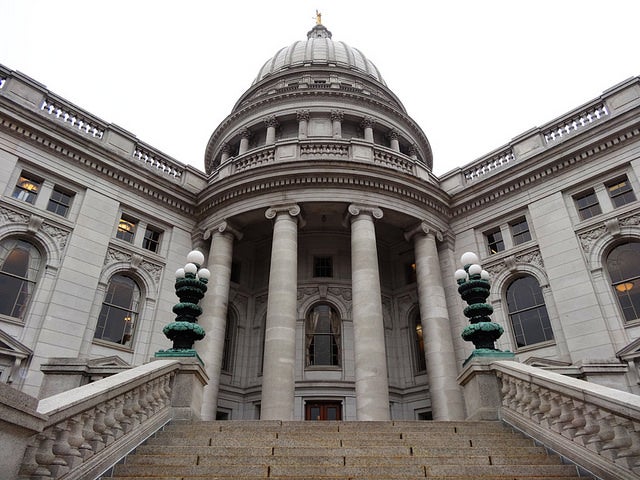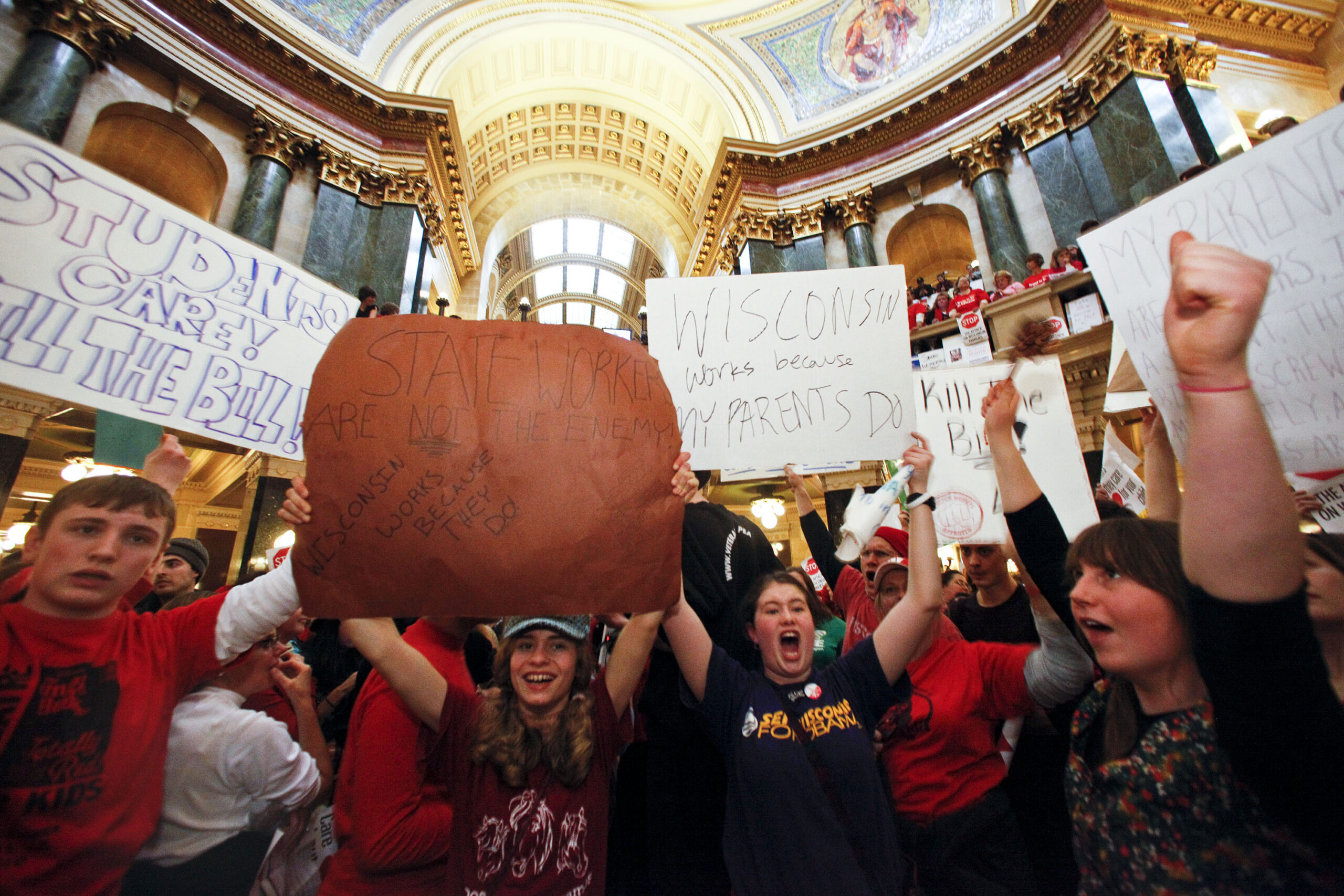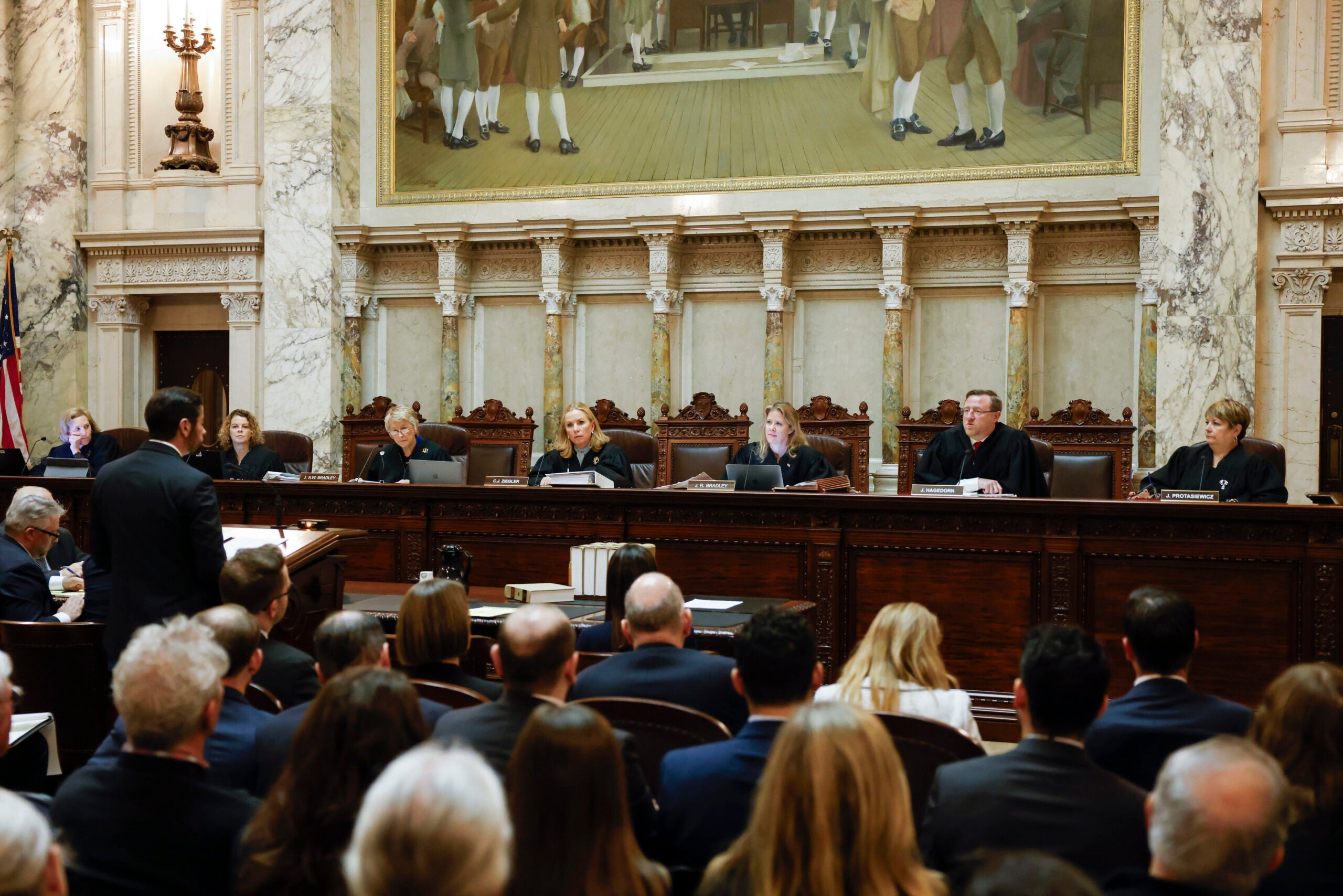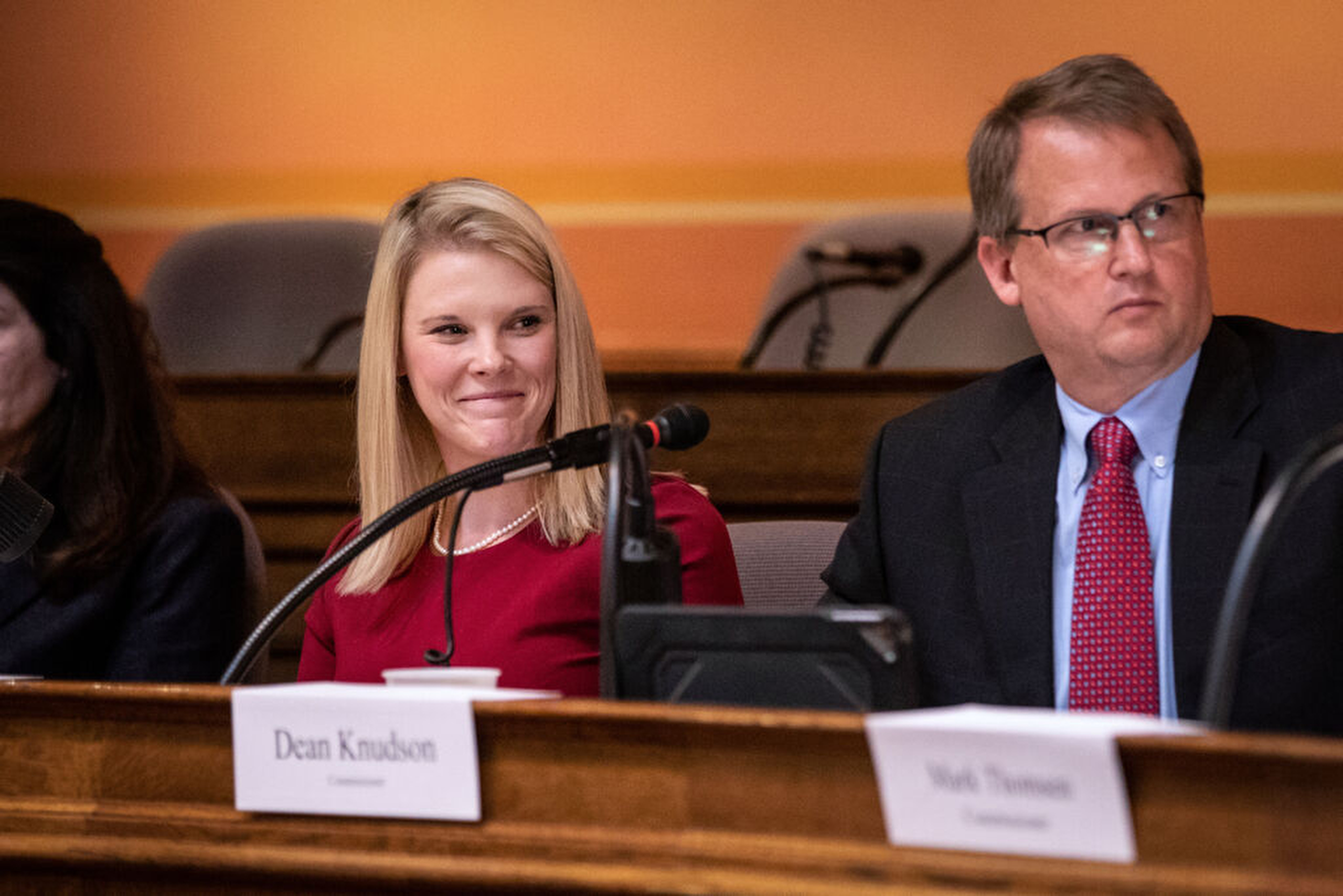A Dane County Judge won’t get involved in a dispute between state Superintendent of schools Tony Evers and Gov. Scott Walker.
It’s a legal fight that dates back to 2011, but is being revived at a time when Evers is one of several Democrats vying to defeat Walker in the 2018 gubernatorial election.
Evers supporters were hoping Dane County Circuit Court Judge Richard Niess would rule Walker was violating an earlier court order by making public statements that undercut the superintendent’s constitutional authority.
Stay informed on the latest news
Sign up for WPR’s email newsletter.
While that dispute may yet play out before the Wisconsin Supreme Court, Niess said Tuesday it was premature for him to get involved.
“The bottom line is this,” Niess said. “There’s nothing that needs to be done.”
The original case behind this dispute was filed by a group of teachers against Walker in 2011 over a law he signed that overhauled Wisconsin’s administrative rulemaking process.
Administrative rules are written by experts at state agencies to fill in the fine details of laws. The changes Walker signed in 2011 required all administrative rules get approved by his office before they take effect.
A Dane County judge ruled in 2012 that those restrictions don’t apply to the state superintendent, which is a constitutional office elected by voters to oversee education in Wisconsin.
The Wisconsin Supreme Court upheld that ruling in 2016 in a decision that split the high court’s conservative majority.
But a few things have changed since then.
In 2016, conservative Justice David Prosser, who ruled against Walker in the original case, retired. Walker appointed Justice Daniel Kelly to replace him.
In 2017, the Legislature passed a new overhaul of administrative rules. This time, they required that rules first get the approval of the state Department of Administration, which answers to Walker.
On top of that, Evers decided to run for governor as a Democrat, a decision that invited more scrutiny on his actions and to the agency he runs.
It was against that backdrop that the conservative Wisconsin Institute for Law and Liberty took the legal fight to Evers, arguing he was breaking the law by not getting approval for new rules from the Walker administration.
Arguing on Evers behalf Tuesday, Madison attorney Susan Crawford said public comments by Walker and Republican Attorney General Brad Schimel were undercutting Evers.
“The superintendent is entitled to resolve that in the eyes of the public,” Crawford said. “It undermines the superintendent’s constitutional authority.”
But Niess ruled that because Evers was still crafting rules without the governor’s interference, there was nothing to resolve.
That could change if the Wisconsin Supreme Court decides to hear the latest challenge to Evers, but so far, justices have stayed silent on the issue.
Evers’ campaign issued a statement after arguments saying it was pleased with the ruling.
“This result allows Tony to continue focusing on what truly matters most — working for the kids and families of Wisconsin,” said Evers campaign manager Maggie Gau.
Walker’s office stood by its position that it was Evers who was out of line.
“We believe DPI should be held to the same high level of transparency and accountability taxpayers expect of any other state agency,” said Walker Press Secretary Amy Hasenberg.
If the Wisconsin Supreme Court decides to hear the latest iteration of this case, it might also have to decide who represents Evers.
Walker and Schimel have said the Department of Justice will represent Evers even though the DOJ disagrees with Evers’ interpretation of the law. Evers wants a lawyer from DPI to represent him instead.
Wisconsin Public Radio, © Copyright 2025, Board of Regents of the University of Wisconsin System and Wisconsin Educational Communications Board.





